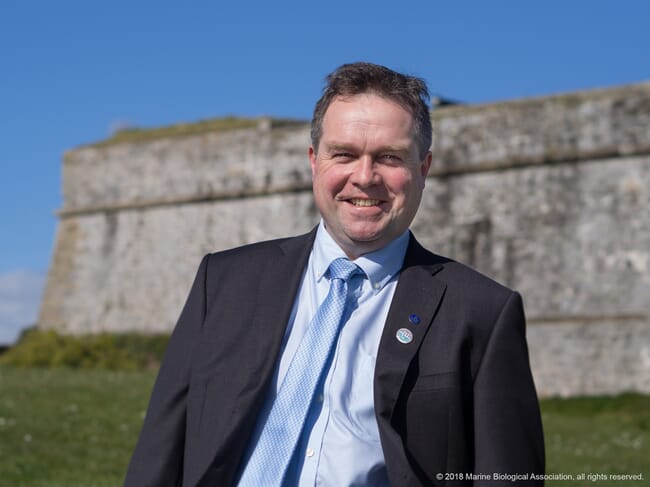The merger sees the Marine Biological Association (MBA) join with the Continuous Plankton Recorder Survey, which was previously known as the Sir Alister Hardy Foundation for Ocean Science (SAHFOS).
Both organisations can demonstrate global impact: the MBA was established in 1884, counts seven Nobel Prize winners among past employees and was awarded a Royal Charter in 2013 in recognition of its status within marine biology. SAHFOS is an international non-profit organisation operating global surveys that measure the ecological health of the ocean using marine plankton.
As a result of the merger the MBA is now 30 percent larger and has pooled impressive expertise and experience: the world’s longest and most spatially extensive biological datasets; fisheries science expertise, ranging from the role of plankton in fisheries recruitment to fish behaviour; and developing new environmental DNA fingerprinting tools that will enable forensic assessments of marine life from nothing more than a cup of seawater.

© MBA
In addition to the incorporation of the CPR Survey, from 3 April Professor Willie Wilson will lead the MBA into its new phase.
Reflecting on his new directorial role, Prof Wilson said: “Together we represent a truly international constituency of marine scientists and a centre of independent, outward-looking research. This new chapter in our eminent history is about reigniting our founders’ spirits of discovery to ensure the new MBA is seen as one of the most widely recognised and respected marine biology organisations in the world.”
There are significant areas of overlap and complementarity between the two organisations, which already share the same premises, infrastructure and resources. These synergies and increased capacity not only bring greater resilience in a changing world, but also opportunities in science, education and training of the next generation of scientists and communicators.
All MBA and CPR Survey operations will continue as normal, but with enhanced capacity.Two established and successful Plymouth marine research organisations have joined forces, bringing more scientific clout to the region and promising opportunities for new discoveries.
In addition to the incorporation of the CPR Survey, from 3 April Professor Willie Wilson will lead the MBA into its new phase.
Reflecting on his new directorial role, Prof Wilson said: “Together we represent a truly international constituency of marine scientists and a centre of independent, outward-looking research. This new chapter in our eminent history is about reigniting our founders’ spirits of discovery to ensure the new MBA is seen as one of the most widely recognised and respected marine biology organisations in the world.”
There are significant areas of overlap and complementarity between the two organisations, which already share the same premises, infrastructure and resources. These synergies and increased capacity not only bring greater resilience in a changing world, but also opportunities in science, education and training of the next generation of scientists and communicators.
All MBA and CPR Survey operations will continue as normal, but with enhanced capacity.Two established and successful Plymouth marine research organisations have joined forces, bringing more scientific clout to the region and promising opportunities for new discoveries.


